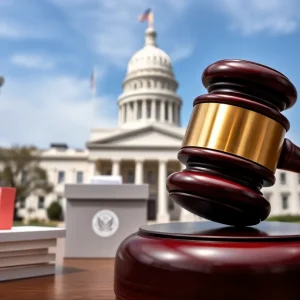Kansas City’s Zero Fare Bus Rides Extended Yet Fiscal Challenges Approach
Despite financial obstacles on the horizon, Kansas City’s zero fare bus and paratransit rides will remain in effect for yet another year. The City Council unanimously approved a noteworthy sum of $70.9 million to fund the Kansas City Area Transportation Authority (KCATA). The extension of the zero fare ride scheme is guaranteed until the contract expires on April 30, 2025. However, significant fiscal challenges are anticipated to surface once the federal COVID-19 relief funds, currently forestalling the budget crisis, become exhausted.
Background of Zero Fare Ride Initiative
The zero fare ride initiative was initially introduced in 2020 for RideKC buses operating within Kansas City and its immediate suburbs under contract with the KCATA. However, in recent months, the city’s resolve in maintaining the no-fee rides appeared to shake due to escalating cost-related anxieties.
KCATA has projected a daunting $26 million fundraising deficit by 2025, a shortfall that will manifest once the federal COVID-19 relief funds are depleted. This impending fiscal challenge leaves city officials grappling with solutions to cover the gap and keep the bus rides free for residents.
Funding Proposals and Potential Solutions
Tyler Means, the Chief Mobility and Strategy Officer at KCATA, proposed the deficit could be significantly reduced by returning to the use of a sales tax, previously allocated solely towards KCATA operations but in recent years shifted towards other transportation necessities, such as streetlight maintenance.
However, City Councilman Johnathan Duncan expressed his doubts about whether the public transportation tax would sufficiently address the budget shortfall, whilst assuring residents that all potential solutions are being considered. However, he emphasized that any enhancements to the bus service, including more frequent service or extensive rout coverage, would require a sizable investment that the city currently cannot afford.
Exploring Alternative Cost-Saving Options
In response to the looming fiscal challenges, City Manager Brian Platt has been tasked with scrutinizing the comparative costs and benefits of the zero fare against a proposed “functional free fare” model. Under this alternative model, free travel would be available only to citizens who meet certain eligibility requirements. However, the specifics of the potential eligibility criteria remain uncertain at this time.
The Impact on Citizens
Sunrise Movement KC organizer, Mahreen Ansari, underlined the importance of distinguishing between “free” and “zero” fare. Ansari pointed out that residents already contribute to public transportation through a ⅜ cent sales tax and a ½ cent public transportation tax.
If the proposed eligibility requirements for free travel are introduced, some city residents may find themselves having to pay out of pocket for bus rides, despite their contributions through these taxes.
As city officials wrestle with the upcoming budget shortfall and explore potential solutions, Kansas City’s commitment to maintaining affordable and accessible public transportation for all its residents will undoubtedly be tested in the coming years.







